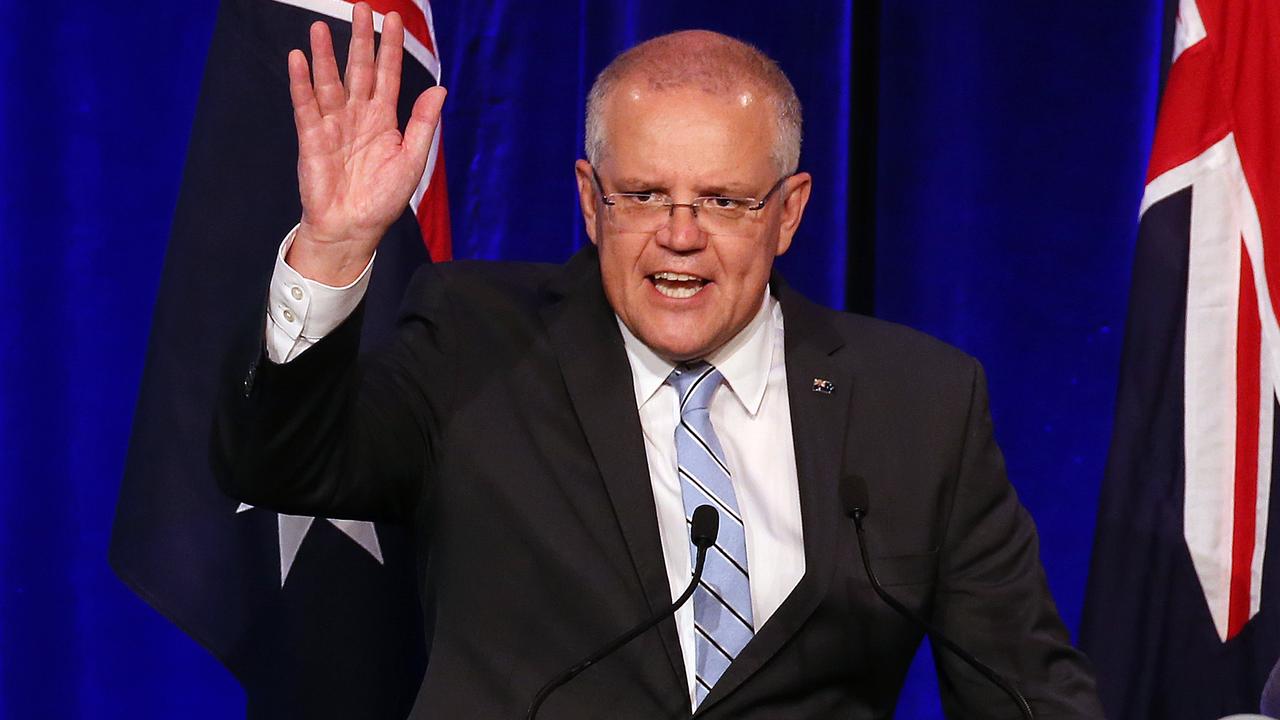
THE Prime Minister's speech to open the Association of Mining and Exploration Companies annual conference on Tuesday really was emblematic of the government's approach to mining operations in this country: a dismissive approach that has been in effect for some time, not just during the life cycle of Julia Gillard's prime ministership.
She spoke about education, not mining, despite the expectations of those in the room. References (scant at best) to mining were seen only through the prism of education, not the other way around, despite the make-up of the audience.
And the links to mining were superficial, despite the know-how in the room that must have wanted to hear what the PM had to say or else they would not have attended the early morning address.
There was no question and answer session to follow the set speech. And the PM had to dash off immediately after she spoke, before even state Mines and Petroleum Minister Norman Moore had addressed the audience. He was forced to adjust the list of luminaries he acknowledged as in attendance to start his speech.
The PM's destination was a local school where, in contrast to her address to the miners, she was prepared to take questions from the assembled children.
Talk among miners leading up to the conference - that Gillard had shown a certain strength of character by being prepared to front up to one of the more hostile mining organisations - was replaced during the week by jokes and barbs about the education speech.
At the dinner for the conference on Wednesday one of the speakers started his remarks by quipping that before he would move on to the important challenges the industry faced, he wanted to briefly discuss his primary school experience as a young boy. Apart from such moments of humour at Gillard's expense, which were met with loud applause, what seriously frustrated miners was that by not engaging in the sector's key debates, including a substantive discussion on upskilling the workforce via educational improvements, the PM provided no perspective on what the government planned to do (if anything) in response to the changing circumstances miners faced.
Iron ore prices have plummeted in recent weeks, down one-quarter in the past month alone. One of the nation's biggest miners, Fortescue Metals Group, has halved its planned investments in the coming years, laying off potentially thousands of workers as it struggles to come to terms with the new price settings. The emerging challenges, courtesy of a decline in some bulk commodity prices, should cast a light on government policy for mining exploration: without new finds the major mines of today may not be replaced with adequate investment to sustain revenues from mining for tomorrow.
Even before Gillard spoke, AMEC chief executive Simon Bennison in his welcome address laid out topics that the organisation and its members would like to hear about from the government, such as the need for a flow-through shares scheme, similar to the model used in Canada, which has seen it become the No 1 exploration destination in the world. Labor went to the 2007 election pledging to do just that. In its first term in office, Resources Minister Martin Ferguson constantly told the mining sector that the promise was on the cusp of being fulfilled, until the hostile debate over the resource super-profits tax took over.
The government likes to point to a fourfold increase in investment in exploration, in dollar terms, to combat suggestions that mining exploration is suffering in Australia. But that is a typically superficial misunderstanding of what's going on. It is also highly misrepresentative. First, while the dollars going into exploration have increased, so have the costs of doing so. This is especially important when it comes to greenfield exploration - that is, sites that previously have not been investigated for minerals. Increased costs without guaranteed returns are highly prohibitive, without taxation arrangements that encourage investment.
In Australia we have the opposite of encouraging taxation arrangements for greenfield exploration. The new mining tax may apply only to coal and iron ore now, but investors worry that the ease with which it could be expanded would militate against them risking dollars on greenfield exploration because the upside might be eroded.
The new exploration the government disingenuously points to is overwhelmingly being done on brownfield sites, not greenfield sites; that is, areas where the heavy lifting of assessing what value is in the ground to be mined has already been done.
It's a self-evident reality that when a mining boom happens and commodity prices go up, brownfield sites that previously were uneconomic are returned to for new mining. But such potential sites can quickly become uneconomic again if commodity prices fall.
When that happens, for mining revenues to continue to flow, we need new greenfield sites. But that's just not happening enough, despite estimates that our untapped reserves match those of anywhere else in the world.
Which is why a pair of professors from the University of Western Australia released a report this week titled Where are Australia's Mines of Tomorrow? It is a damning assessment of investment in greenfield exploration in this country.
The report highlights that while investment in non-bulk commodities in Canada, for example, has increased from 14 per cent to 18 per cent as a share of global exploration in the past decade, in Australia it has almost halved, from 21 per cent to 12 per cent. Australia's poor comparison with Canada is important since the government likes to dismiss comparisons with exploration growth in African countries because of our higher standards as a developed nation. The Canadian comparison shows that a developed nation supported by the right policy mix can continue to compete and grow.
It's no secret that AMEC represents the smaller exploration miners - hundreds of them - rather than the big miners, which use the Minerals Council as their peak body.
Equally, it's no secret that AMEC was left out of negotiations when Gillard sought a compromise on the super-profits tax after she rolled Kevin Rudd for the prime ministership and Labor leadership.
That resulted in a new tax that, increasingly, all sides are saying will not achieve the revenue projections Treasury has thus far claimed. And the fact it was stitched up behind closed doors in a deal between the government and the three big miners (Rio Tinto, BHP Billiton and Xstrata) goes against every principle of good governance politicians should adhere to.
The PM had two viable choices when she agreed to address AMEC: use it as an opportunity to engage with a sector that she has thus far shunned, or use it to stand firm on Labor's policy settings and give reasons for doing so.
Instead she did neither, opting to ignore the audience and their concerns, playing only to the cameras at the back of the room.
Peter van Onselen is a Winthrop professor at the University of Western Australia.



